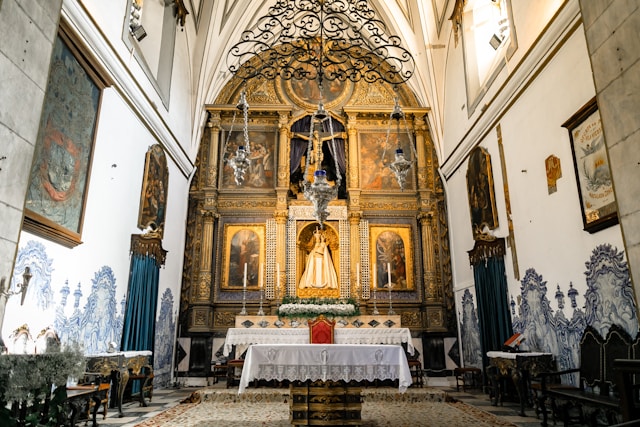Your cart is currently empty!
St. Elizabeth of Hungary: A Life of Charity and Humility

Early Life and Marriage
Elizabeth was born in 1207 in Pozsony, Hungary, into a royal family. Her father, King Andrew II, and her mother, Gertrude of Meran, were both devout Catholics. Elizabeth received a pious upbringing and was taught to care for the poor and sick.
In 1221, at the age of 14, Elizabeth married Ludwig IV, Landgrave of Thuringia. The marriage was arranged for political reasons, but Elizabeth and Ludwig developed a deep love for each other. Elizabeth continued her charitable work during her time in Thuringia, establishing hospitals and soup kitchens for the needy.
Widowhood and Exile
Ludwig was killed in battle in 1226, leaving Elizabeth a widow with three young children. Her brother-in-law, Henry Raspe, seized the Thuringian throne and accused Elizabeth of squandering the kingdom’s wealth. She was forced to flee with her children into exile.
Elizabeth wandered for several years, living on the charity of others. She eventually settled in Marburg, Germany, where she established a hospital and hospice for the sick and poor.
Miracles and Sainthood
Elizabeth is known for her many miracles, including healing the sick, multiplying food, and even raising the dead. She was canonized by Pope Gregory IX in 1235, just two years after her death.
Elizabeth is the patron saint of Hungary, the Third Order of St. Francis, and nurses. She is also invoked for help in finding a spouse, protecting against childbirth complications, and curing eye diseases.
Legacy
Elizabeth of Hungary is remembered as a model of Christian charity and humility. Her life has inspired countless people throughout the centuries to follow her example of love and compassion for the poor and needy.
Table of Saint Elizabeth’s Miracles
| Miracle | Details |
|—|—|
| Healing the sick | Elizabeth is said to have healed countless people, including lepers, the blind, and the lame. |
| Multiplying food | On several occasions, Elizabeth multiplied loaves of bread to feed the poor. |
| Raising the dead | Elizabeth is said to have raised a young boy from the dead after he had drowned. |
Links to Resources
* Saint Elizabeth of Hungary at Encyclopedia Britannica
* Saint Elizabeth of Hungary at Catholic Online
* Saint Elizabeth of Hungary at Franciscan Media